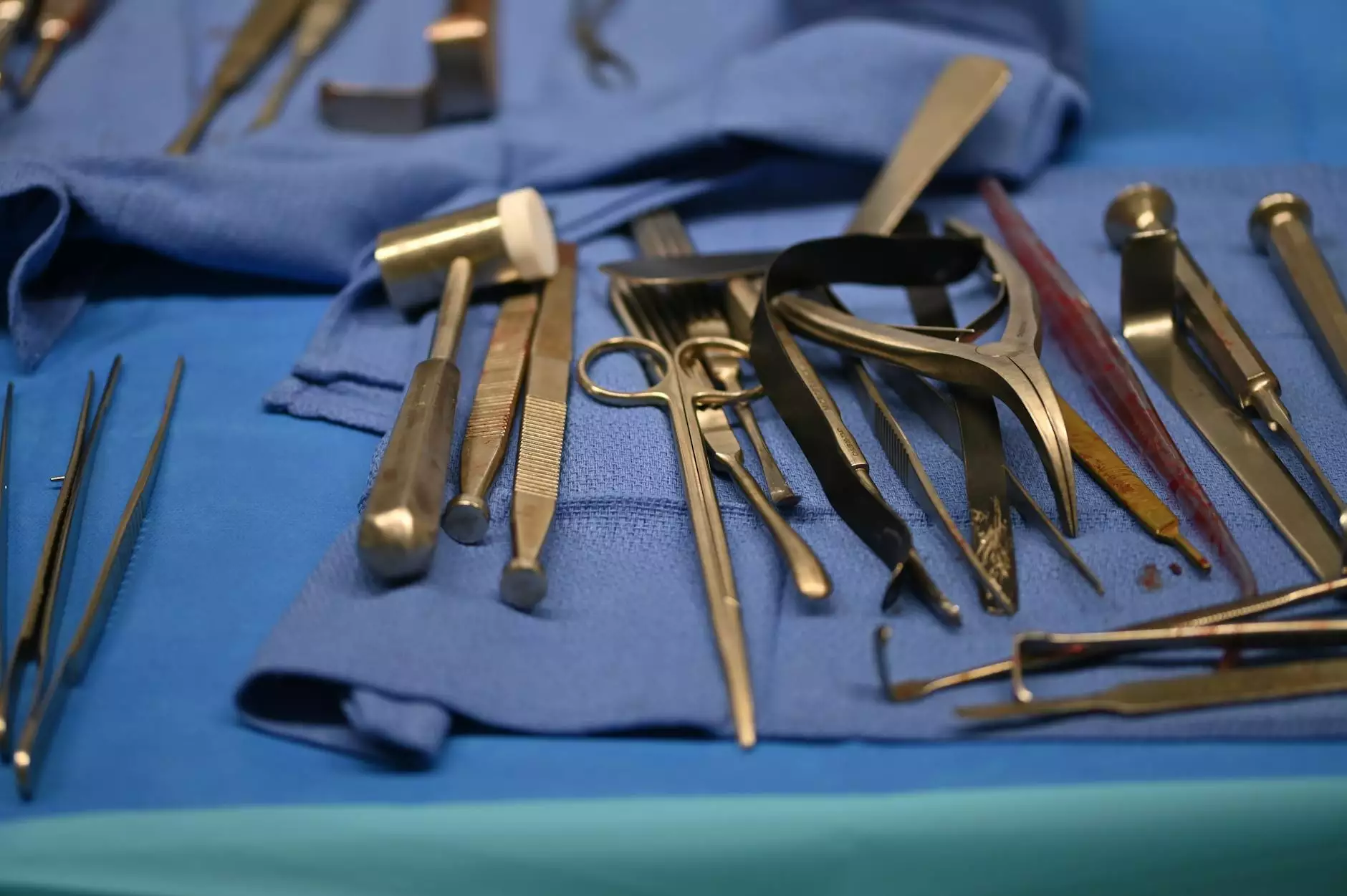Lung Cancer Treatment Surgery: A Comprehensive Guide

Lung cancer continues to be one of the most prevalent cancers globally, impacting thousands of lives every year. The journey of managing lung cancer can be overwhelming, but understanding the surgical treatment options available is crucial for patients and their families. This article aims to provide an in-depth understanding of "lung cancer treatment surgery"—exploring types, procedures, recovery, and the exceptional care available right here at Neumark Surgery.
Understanding Lung Cancer
Lung cancer occurs primarily due to uncontrolled cell growth in the lung tissues, and it can be categorized mainly into two types: non-small cell lung cancer (NSCLC) and small cell lung cancer (SCLC). Each type presents unique challenges and treatment pathways. According to research, smoking is a leading cause of lung cancer, but other risk factors include exposure to radon gas, asbestos, and a family history of the disease.
Signs and Symptoms
Being aware of the signs and symptoms of lung cancer can lead to early detection, which is crucial for effective treatment. Common symptoms include:
- Persistent cough that worsens over time
- Unexplained weight loss
- Chest pain that may worsen with deep breathing, coughing, or laughing
- Shortness of breath
- Coughing up blood
Diagnosis of Lung Cancer
Diagnosing lung cancer involves a thorough medical evaluation, which includes a physical examination, imaging tests (like X-rays and CT scans), and biopsies to confirm the presence of cancer cells. Once a diagnosis is established, staging the cancer is crucial to determine the extent of the disease and inform treatment options.
Surgical Options for Lung Cancer Treatment
When lung cancer is diagnosed, surgery can be a pivotal treatment option, particularly for patients with early-stage disease. The goal of lung cancer treatment surgery often involves removing cancerous tumors while preserving as much healthy lung tissue as possible. Here are the primary surgical options:
1. Lobectomy
A lobectomy is the most common surgical procedure for lung cancer. It involves the removal of one lobe of the lung affected by cancer. Studies have shown that lobectomy has a higher success rate compared to other surgical options, making it a preferred choice.
2. Pneumonectomy
A pneumonectomy involves the complete removal of one lung. This approach is considered if the cancer is extensive and affects the entire lung. Although more radical, it can be necessary for increasing the chances of curing the disease.
3. Segmentectomy
Segmentectomy refers to the removal of a specific segment of the lung lobe. This less extensive option might be appropriate for smaller tumors or for patients where conserving lung tissue is critical.
4. Wedge Resection
A wedge resection involves removing a small, wedge-shaped portion of the lung containing the tumor and some surrounding healthy tissue. This option is typically chosen for very small tumors, particularly in patients with compromised lung function.
Preparing for Lung Cancer Treatment Surgery
Preparation for lung cancer surgery includes several important steps:
- Pre-operative assessments: This includes evaluating lung function, overall health, and the specific characteristics of the cancer.
- Discussion of surgery: Patients should have a thorough discussion with their surgical team regarding the procedure, potential risks, and expected outcomes.
- Pre-surgery tests: Blood tests, imaging tests, and possibly pulmonary function tests will likely be conducted to ensure the patient is fit for surgery.
What to Expect During Lung Cancer Treatment Surgery
On the day of the procedure, patients will be greeted by a team of healthcare professionals. Here’s what to typically expect:
- Anesthesia: Patients will receive general anesthesia to ensure they are asleep and pain-free during the surgery.
- Surgical procedure: The surgeon will make an incision in the chest, either through the side or the front, depending on the surgery type and location of the tumor.
- Monitoring: During the procedure, patients will be closely monitored for vital signs and any potential complications.
Recovery After Lung Cancer Treatment Surgery
Post-surgery recovery is a vital phase in the treatment process. Recovery times can vary based on the type of surgery performed and the patient's overall health. Common aspects of recovery include:
1. Hospital Stay
Patients typically stay in the hospital for several days post-surgery. During this time, healthcare providers will manage pain, monitor for complications, and assist patients in getting up and moving to promote recovery.
2. Pain Management
Effective pain management is crucial for a smooth recovery. Patients can expect to receive medications and guidance on how to manage post-operative pain effectively.
3. Rehabilitation and Recovery
Once discharged, patients may require rehabilitation, which can consist of pulmonary rehabilitation programs. These programs aim to help patients regain strength, improve lung function, and enhance their quality of life.
Long-term Outlook After Lung Cancer Treatment Surgery
The long-term outlook after lung cancer treatment surgery largely depends on the stage of cancer at diagnosis, the type of surgery performed, and overall patient health. Regular follow-up appointments, imaging tests, and possibly adjuvant therapies (like chemotherapy) are often recommended to monitor for any recurring disease.
- Regular follow-ups: Patients should adhere to follow-up schedules to monitor lung health and catch any potential recurrence early.
- Healthy lifestyle: Adopting a healthy lifestyle, including a balanced diet and regular exercise, can significantly aid recovery and improve overall health.
- Emotional support: Consider counseling or support groups as mental and emotional health is also paramount in the recovery journey.
Expert Care at Neumark Surgery
At Neumark Surgery, we prioritize patient care and understand the complexities of lung cancer. Our skilled surgeons, led by experienced oncologists, offer personalized care tailored to the individual needs of our patients. We leverage advanced technologies and surgical techniques to optimize outcomes and provide compassionate support throughout the treatment process.
If you or a loved one are facing a lung cancer diagnosis, we invite you to reach out and discuss your treatment options. Our dedicated team is here to guide you on your journey toward recovery.
Conclusion
Lung cancer treatment surgery is a critical component in the fight against lung cancer. With advancements in surgical techniques and comprehensive care available, patients have access to treatments designed not just to prolong life but to enhance its quality. Awareness, early detection, and informed decision-making are key in navigating this challenging journey.
For more information about our services, visit Neumark Surgery or contact us today to schedule a consultation. Together, we can take the steps towards a healthier future.



